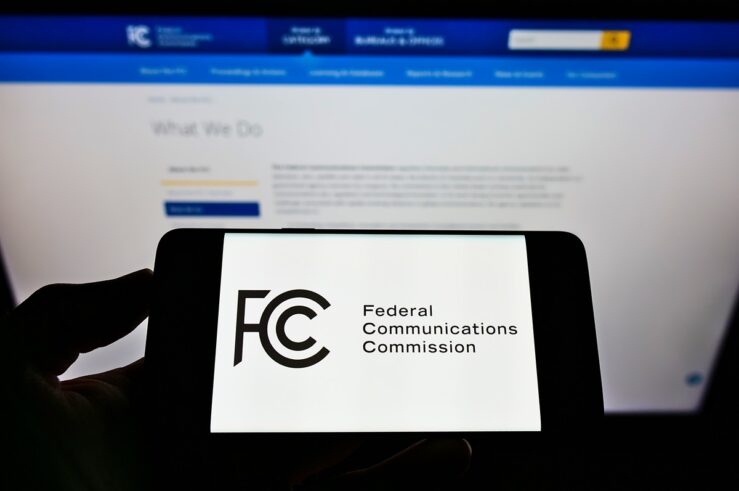
This article is a part of the The Law, Economics, and Policy of the COVID-19 Pandemic symposium.

[TOTM: The following is part of a blog series by TOTM guests and authors on the law, economics, and policy of the ongoing COVID-19 pandemic. The entire series of posts is available here.
This post is authored by Dirk Auer, (Senior Fellow of Law & Economics, International Center for Law & Economics).]
Republican Senator Josh Hawley infamously argued that Big Tech is overrated. In his words:
My biggest critique of big tech is: what big innovation have they really given us? What is it now that in the last 15, 20 years that people who say they are the brightest minds in the country have given this country? What are their great innovations?
To Senator Hawley these questions seemed rhetorical. Big Tech’s innovations were trivial gadgets: “autoplay” and “snap streaks”, to quote him once more.
But, as any Monty Python connoisseur will tell you, rhetorical questions have a way of being … not so rhetorical. In one of Python’s most famous jokes, members of the “People’s Front of Judea” ask “what have the Romans ever done for us”? To their own surprise, the answer turns out to be a great deal:
This post is the first in a series examining some of the many ways in which Big Tech is making Coronavirus-related lockdowns and social distancing more bearable, and how Big Tech is enabling our economies to continue functioning (albeit at a severely reduced pace) throughout the outbreak.
Although Big Tech’s contributions are just a small part of a much wider battle, they suggest that the world is drastically better situated to deal with COVID-19 than it would have been twenty years ago – and this is in no small part thanks to Big Tech’s numerous innovations.
Of course, some will say that the world would be even better equipped to handle COVID-19, if Big Tech had only been subject to more (or less) regulation. Whether these critiques are correct, or not, they are not the point of this post. For many, like Senator Hawley, it is apparently undeniable that tech does more harm than good. But, as this post suggests, that is surely not the case. And before we do decide whether and how we want to regulate it in the future, we should be particularly mindful of what aspects of “Big Tech” seem particularly suited to dealing with the current crisis, and ensure that we don’t adopt regulations that thoughtlessly undermine these.
1. Priceless information
One of the most important ways in which Big Tech firms have supported international attempts to COVID-19 has been their role as information intermediaries.
As the title of a New York Times article put it:
When Facebook Is More Trustworthy Than the President: Social media companies are delivering reliable information in the coronavirus crisis. Why can’t they do that all the time?
The author is at least correct on the first part. Big Tech has become a cornucopia of reliable information about the virus:
- Big Tech firms are partnering with the White House and other agencies to analyze massive COVID-19 datasets in order to help discover novel answers to questions about transmission, medical care, and other interventions. This partnership is possible thanks to the massive investments in AI infrastructure that the leading tech firms have made.
- Google Scholar has partnered with renowned medical journals (as well as public authorities) to guide citizens towards cutting edge scholarship relating to COVID-19. This a transformative ressource in a world of lockdows and overburdened healthcare providers.
- Google has added a number of features to its main search engine – such as a “Coronavirus Knowledge Panel” and SOS alerts – in order to help users deal with the spread of the virus.
- On Twitter, information and insights about COVID-19 compete in the market for ideas. Numerous news outlets have published lists of recommended people to follow (Fortune, Forbes).
Furthermore – to curb some of the unwanted effects of an unrestrained market for ideas – Twitter (and most other digital platforms) links to the websites of public authorities when users search for COVID-related hashtags.
- This flow of information is a two-way street: Twitter, Facebook and Reddit, among others, enable citizens and experts to weigh in on the right policy approach to COVID-19.
Though the results are sometimes far from perfect, these exchanges may prove invaluable in critical times where usual methods of policy-making (such as hearings and conferences) are mostly off the table.
- Perhaps most importantly, the Internet is a precious source of knowledge about how to deal with an emerging virus, as well as life under lockdown. We often take for granted how much of our lives benefit from extreme specialization. These exchanges are severely restricted under lockdown conditions. Luckily, with the internet and modern search engines (pioneered by Google), most of the world’s information is but a click away.
For example, Facebook Groups have been employed by users of the social media platform in order to better coordinate necessary activity among community members — like giving blood — while still engaging in social distancing.
In short, search engines and social networks have been beacons of information regarding COVID-19. Their mostly bottom-up approach to knowledge generation (i.e. popular topics emerge organically) is essential in a world of extreme uncertainty. This has ultimately enabled these players to stay ahead of the curve in bringing valuable information to citizens around the world.
2. Social interactions
This is probably the most obvious way in which Big Tech is making life under lockdown more bearable for everyone.
- In Italy, Whatsapp messages and calls jumped by 20% following the outbreak of COVID-19. And Microsoft claims that the use of Skype jumped by 100%.
- Younger users are turning to social networks, like TikTok, to deal with the harsh realities of the pandemic.
- Strangers are using Facebook groups to support each other through difficult times.
- And institutions, like the WHO, are piggybacking on this popularity to further raise awareness about COVID-19 via social media.
- In South Africa, health authorities even created a whatsapp contact to answer users questions about the virus.
- Most importantly, social media is a godsend for senior citizens and anyone else who may have to live in almost total isolation for the foreseeable future. For instance, nursing homes are putting communications apps, like Skype and WhatsApp, in the hands of their patients, to keep up their morale (here and here).
And with the economic effects of COVID-19 starting to gather speed, users will more than ever be grateful to receive these services free of charge. Sharing data – often very limited amounts – with a platform is an insignificant price to pay in times of economic hardship.
3. Working & Learning
It will also be impossible to effectively fight COVID-19 if we cannot maintain the economy afloat. Stock markets have already plunged by record amounts. Surely, these losses would be unfathomably worse if many of us were not lucky enough to be able to work, and from the safety of our own homes. And for those individuals who are unable to work from home, their own exposure is dramatically reduced thanks to a significant proportion of the population that can stay out of public.
Once again, we largely have Big Tech to thank for this.
- Downloads of Microsoft Teams and Zoom are surging on both Google and Apple’s app stores. This is hardly surprising. With much of the workforce staying at home, these video-conference applications have become essential. The increased load generated by people working online might even have caused Microsoft Teams to crash in Europe.
- According to Microsoft, the number of Microsoft Teams meetings increased by 500 percent in China.
- Sensing that the current crisis may last for a while, some firms have also started to conduct job interviews online; populars apps for doing so include Skype, Zoom and Whatsapp.
- Slack has also seen a surge in usage, as firms set themselves up to work remotely. It has started offering free training, to help firms move online.
- Along similar lines, Google recently announced that its G suite of office applications – which enables users to share and work on documents online – had recently passed 2 Billion users.
- Some tech firms (including Google, Microsoft and Zoom) have gone a step further and started giving away some of their enterprise productivity software, in order to help businesses move their workflows online.
And Big Tech is also helping universities, schools and parents to continue providing coursework and lectures to their students/children.
- Zoom and Microsoft Teams have been popular choices for online learning. To facilitate the transition to online learning, Zoom has notably lifted time limits relating to the free version of its app (for schools in the most affected areas).
- Even in the US, where the virus outbreak is currently smaller than in Europe, thousands of students are already being taught online.
- Much of the online learning being conducted for primary school children is being done with affordable Chromebooks. And some of these Chromebooks are distributed to underserved schools through grant programs administered by Google.
- Moreover, at the time of writing, most of the best selling books on Amazon.com are pre-school learning books:
Finally, the advent of online storage services, such as Dropbox and Google Drive, has largely alleviated the need for physical copies of files. In turn, this enables employees to remotely access all the files they need to stay productive. While this may be convenient under normal circumstances, it becomes critical when retrieving a binder in the office is no longer an option.
4. So what has Big Tech ever done for us?
With millions of families around the world currently under forced lockdown, it is becoming increasingly evident that Big Tech’s innovations are anything but trivial. Innovations that seemed like convenient tools only a couple of days ago, are now becoming essential parts of our daily lives (or, at least, we are finally realizing how powerful they truly are).
The fight against COVID-19 will be hard. We can at least be thankful that we have Big Tech by our side. Paraphrasing the Monty Python crew:
Q: What has Big Tech ever done for us?
A: Abundant, free, and easily accessible information. Precious social interactions. Online working and learning.
Q: But apart from information, social interactions, and online working (and learning); what has Big Tech ever done for us?
For the answer to this question, I invite you to stay tuned for the next post in this series.




